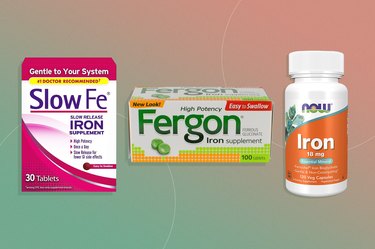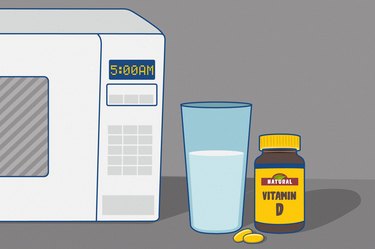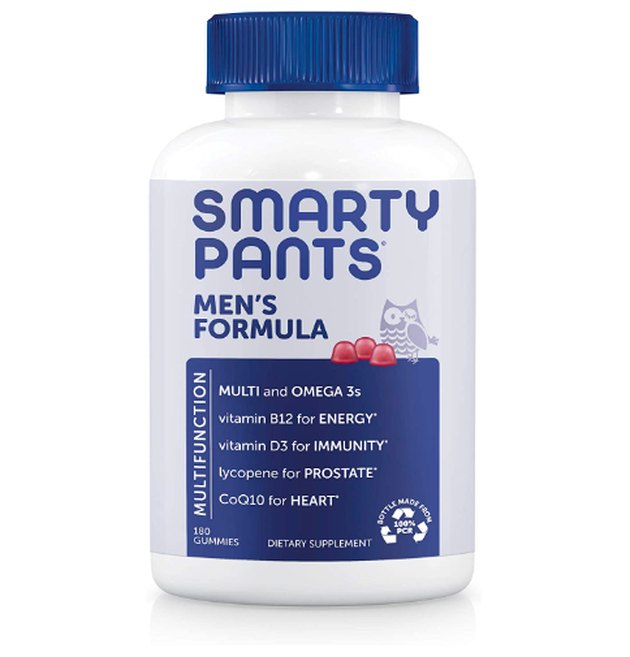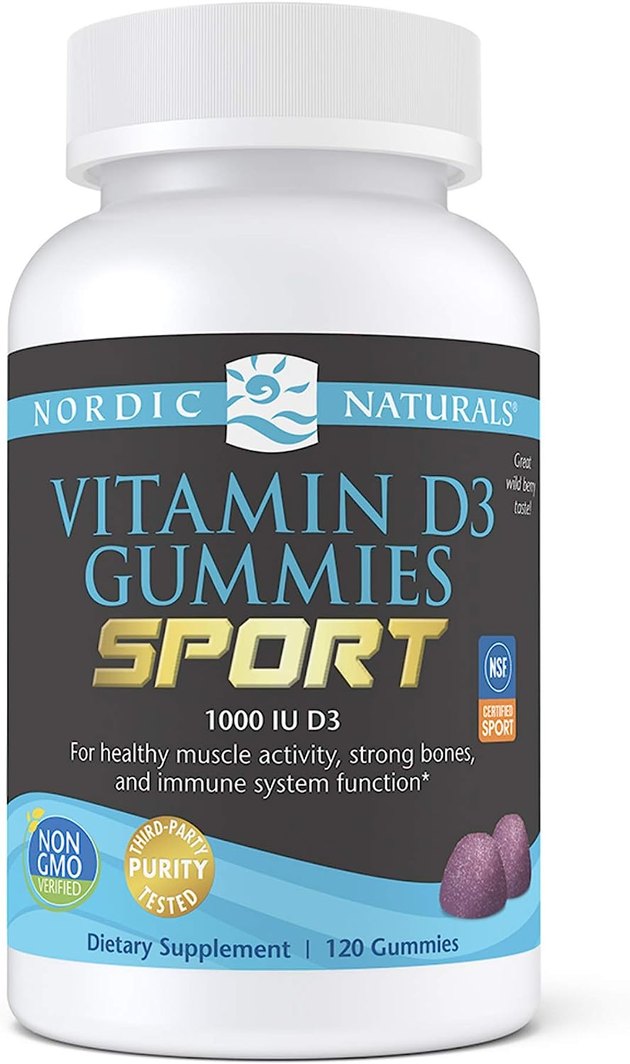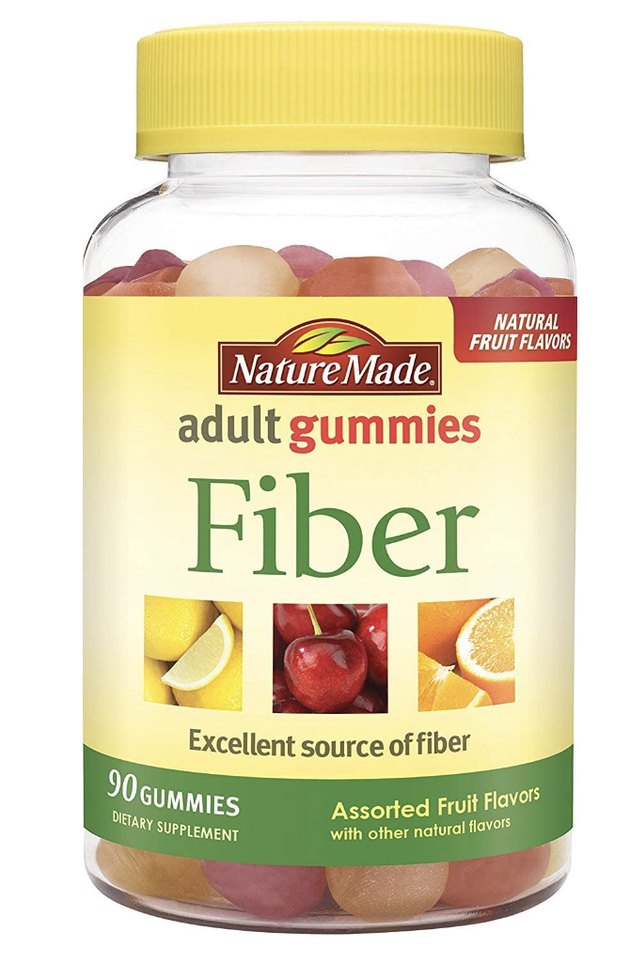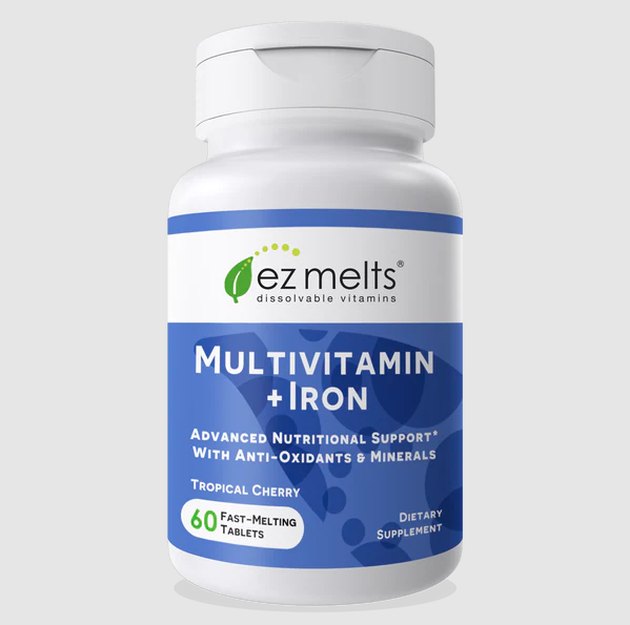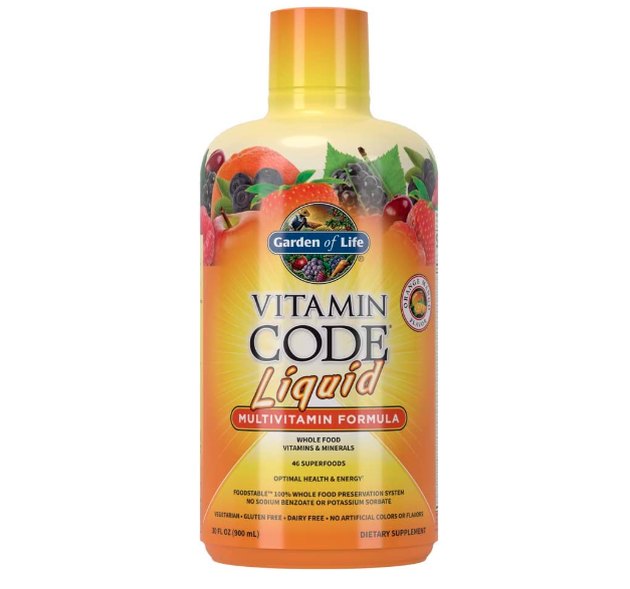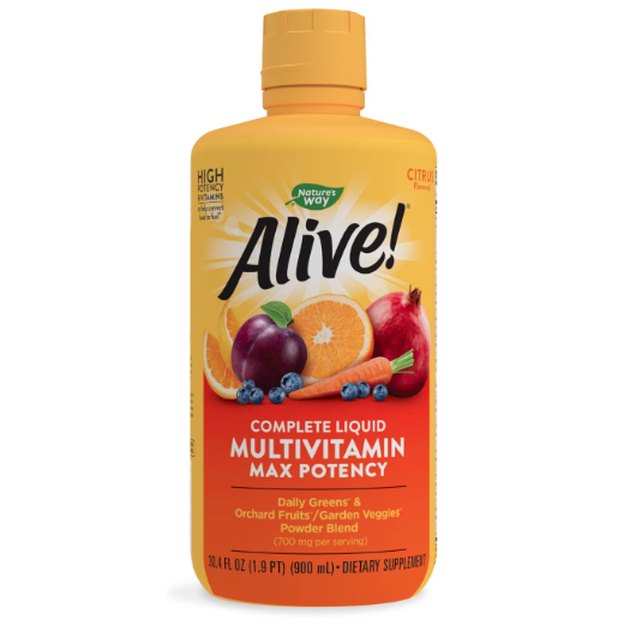
Many of us experience an uncomfortable side effect when popping vitamins or supplements — you know, that unsettling feeling in our stomach. Yet more than 4 out of 5 Americans currently take them, according to a January 2019 report from the American Osteopathic Association.
So should you skip your daily supp to help spare your stomach?
Video of the Day
Video of the Day
Why Supplements Can Cause an Upset Stomach
People with sensitive stomachs may be more prone to abdominal discomfort when taking dietary supplements.
After all, between 60 to 70 million Americans are affected by all types of digestive diseases such as ulcerative colitis, Crohn's disease and irritable bowel syndrome (IBS), per the National Institute of Diabetes and Digestive and Kidney Diseases.
"The severity of an upset stomach can vary from mild nausea to severe cramping, and this can occur within minutes of ingesting the supplement," says Nicole Avena, PhD, assistant professor of neuroscience at Mount Sinai School of Medicine and visiting professor of health psychology at Princeton University.
In many instances, Avena says, the difficult-to-digest vitamins and minerals include:
People living with gastrointestinal (GI) issues or those who can't tolerate taking vitamins and minerals in supplement form face an ongoing dilemma: Their sensitive GI systems might be preventing them from properly absorbing dietary supplements, yet not taking supplements (such as a multivitamin) could lead to possible long-term nutrient deficiencies, Avena says.
To counteract this reaction, first, make sure you're taking the supplement as directed on the label — many vitamins should not be taken on an empty stomach. Also, talk to your doctor to figure out if nausea is your body's way of signaling that your system is overloaded with one (or more) of the three common culprits (iron, vitamin C and/or vitamin D).
If you've already done the above and you're searching for a brand or formula likely to be more stomach-soothing, keep scrolling.
How We Chose
Unlike prescription medications, the Food and Drug Administration (FDA) doesn't regulate supplement safety and efficacy until after the products hit store shelves. But they do establish mandatory Current Good Manufacturing Practices (CGMPs) for supplements, including requirements for preparation and storage.
We spoke to registered dietitians and included quality products that have verification from independent quality-control organizations such as:
Read more about how we cover products.
Gummies
"Taste can contribute to nausea, so opt for a gummy, which comes in different fruit flavors and is easy to take," Avena says. Just keep in mind that gummies often contain added sugar.
Orally Disintegrating Tablets
Avena advises finding a vitamin or mineral supplement that dissolves on the tongue, called an orally disintegrating tablet, which may be better tolerated by kids, older adults and others with difficulty swallowing pills, according to the FDA, such as EZ Melts multivitamins, which are designed to melt in your mouth (no water necessary).
When some of the active ingredients are absorbed in the mouth — before making their way to the digestive tract — vitamins may be gentler on the stomach, Avena explains.
Liquid Supplements
Drinking your daily dose of essential vitamins and minerals instead of gagging on a pill might put nausea to rest.
For example, Garden of Life Vitamin Code's liquid multivitamin is made from vitamins and minerals derived from 46 nutrient-dense foods like quinoa and chia seed sprouts. It's also free of dairy, gluten, artificial flavors, sweeteners, colors and preservatives.
- American Osteopathic Association: "Poll Finds 86% of Americans Take Vitamins or Supplements Yet Only 21% Have a Confirmed Nutritional Deficiency"
- NIH: "Digestive Diseases Statistics for the United States"
- FDA: "Guidance for Industry Orally Disintegrating Tablets"
- FDA: "FDA 101: Dietary Supplements"
- Rainbow Light: Vitamins
- Mayo Clinic: Probiotics

